Caring for a dog can, at times, be challenging, but it’s also a very rewarding experience. When you purchase a puppy, it’s like having a new best friend. You will go through much together and perhaps even grow up together.
While you might still be in your prime, your dog might be beginning to gray. Now is the time it needs you more than ever. As you had to care for your dog when he was just a puppy, you’ll have to put in a similar effort now. You may need to do things like purchase dog diapers from Pet Parents, and much more to care for your four-legged senior.
To keep your dog healthy and help him live longer, try doing the five things mentioned below:
Contents
1. Keep up Your Dog’s Dental Hygiene
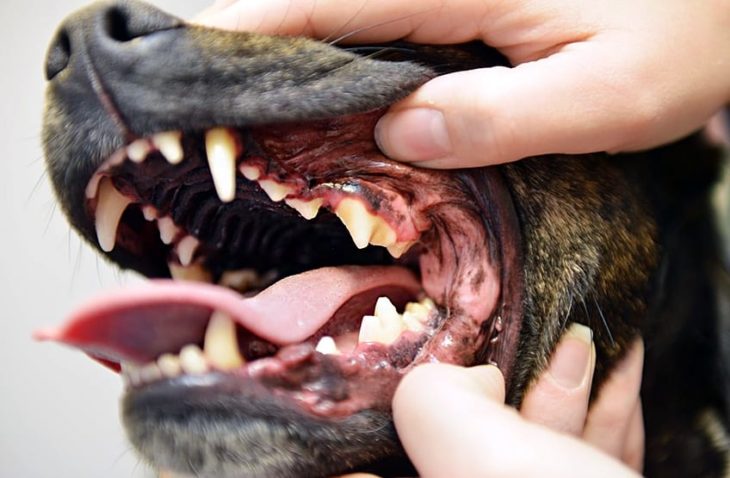
Source: Calder Vets
Although dental hygiene is essential throughout your dog’s life, it is most crucial at this stage. Your dog is now more susceptible to harmful diseases and illnesses, and its immune system is lower. Also, he can easily lose his teeth at this age if you don’t take care of them properly.
Consider regularly brushing your dog’s teeth at home, or take him to a professional to get the job done. If your dog is not too excited to get his teeth brushed, then it might be useful to try dental toys and treats.
2. Be Careful About Your Dog’s Diet
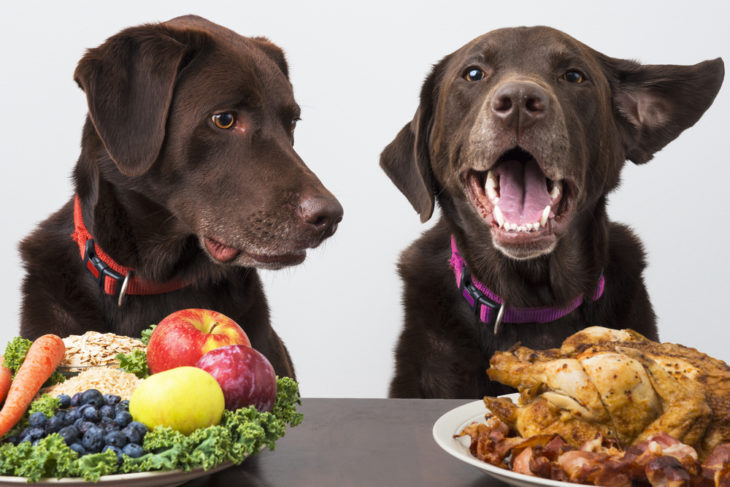
Source: Fizzion
Other than a change in his immune system, your dog’s other bodily functions will begin to slow down as he ages. Your canine might begin to have problems chewing his food, suffer a lack of appetite, and experience digestive issues, among other problems. This is precisely why now is the time to start caring about your dog’s diet more than ever.
Begin by consulting with your vet to figure out the most appropriate dietary plan for your dog. It may be suggested that you include more fiber or decrease the intake of carbs, among other things. Your vet may even suggest some essential supplements that will be very beneficial.
3. Increase Vet Visits
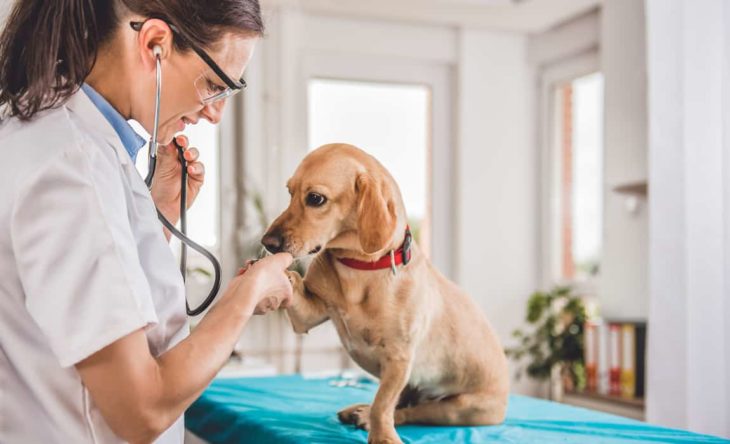
Source: K9 of Mine
Before, you might have only gone to see the vet when something was wrong, but your dog is now in a more fragile position. His immune system is weaker than it used to be, making your pooch more prone to illness and disease.
So get your doggy checked every couple of months. He may need tests, dental care, examinations, and many other things. Getting early treatment may also help detect certain diseases early before they become significant issues.
4. Exercise Your Dog
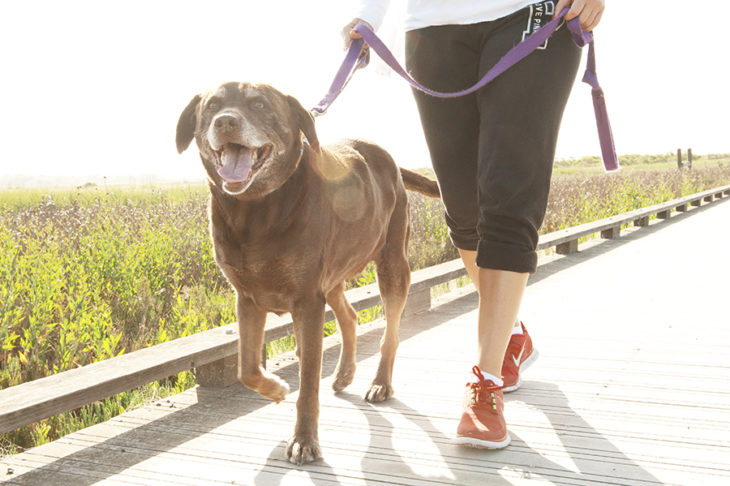
Source: Positively.com
You may have witnessed certain difficulties your grandparents experienced in their old age. Similarly, your dog might not be able to do the things he once enjoyed. He might have difficulty engaging in physical activities like chasing a ball across a field. You can make sure that your dog remains healthy by incorporating light exercises into his routine.
Try taking your dog on brisk walks and monitor his breathing to make sure there are no problems. Use stimulating toys and plenty of other things to keep your aging dog’s mind sharp.
5. Senior-Proof Your House

Source: pinterest
When you got your puppy, you might’ve done all sorts of things to puppy-proof the house. Now is the time to perform something similar to create the best environment for your older dog.
Keep food and water in easily accessible areas, especially if your dog has trouble seeing. If you live in a colder area, consider heating his bed. You can do many similar things to make your home more suitable for an elderly dog.
If your dog has an illness or disabilities, change some things around your house to better accommodate your pooch. Simple things, like softer bedding, if your dog has arthritis, can make your canine happier in his old age.
6. Regularly Groom Your Dog
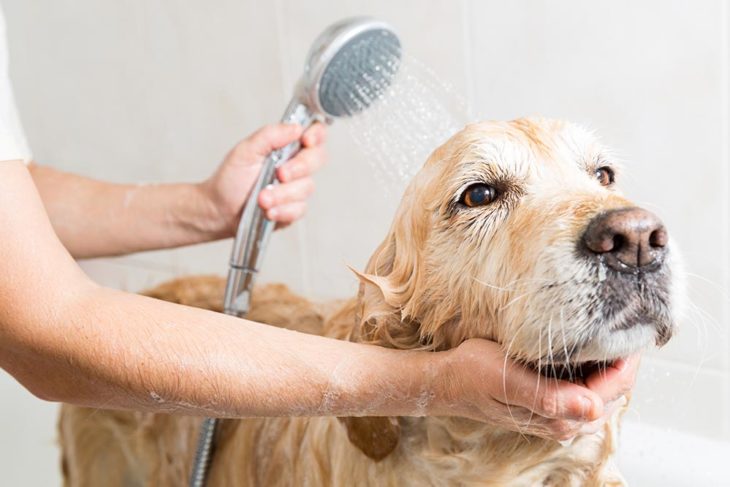
Source: American Kennel Club
Your dog might have had a beautiful, shiny coat once, but that might not be the case anymore. As a dog ages, their fur and skin get dull, brittle, and wrinkly. Your senior canine might also have dry and irritated skin. These things will only get worse with time if you don’t properly take care of your dog.
Brush your dog regularly. Consider using organic shampoo, conditioner, and other products, as they might be gentler on your dog’s coat.
7. Keep Up With Vaccinations and Parasite Protection
 It doesn’t matter how old your dog is. He is still susceptible to ticks, fleas, and other parasites. An older dog will also have a more difficult time moving, making it very challenging to scratch an itch. Continue administering the proper protection treatment regularly, or begin now if you didn’t before.
It doesn’t matter how old your dog is. He is still susceptible to ticks, fleas, and other parasites. An older dog will also have a more difficult time moving, making it very challenging to scratch an itch. Continue administering the proper protection treatment regularly, or begin now if you didn’t before.
You should also keep up with vaccinations. However, your older dog won’t require them with the same frequency as it once did. Although you should consult your vet for what’s best for your pooch, taking your dog once every three years to be vaccinated should be enough.
8. Spend Some Quality Time with Your Pooch

Source: The Spruce Pets
It can be daunting to watch your dog grow old and go through a series of problems. After all, your dog is like a family member. The best thing you can do is spend more time with your old friend while he is still there next to you.
Some older dogs become very anxious if their owners are not always by their side. Don’t be sad at this point. Shower your dog with love and attention every single day.
